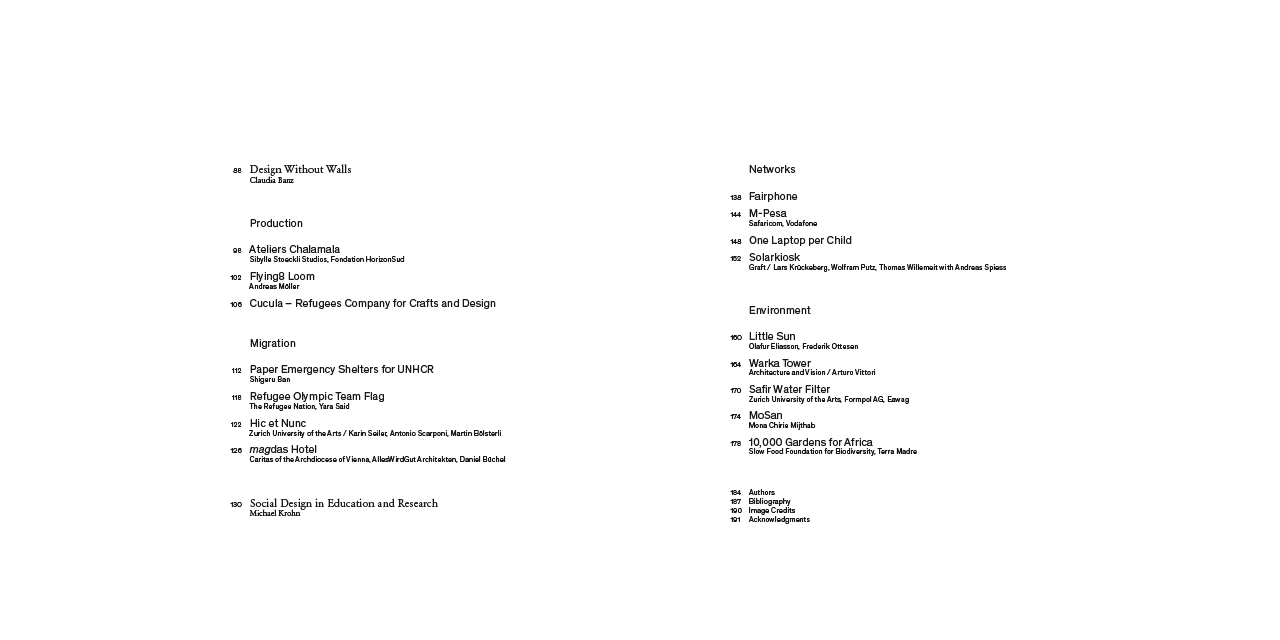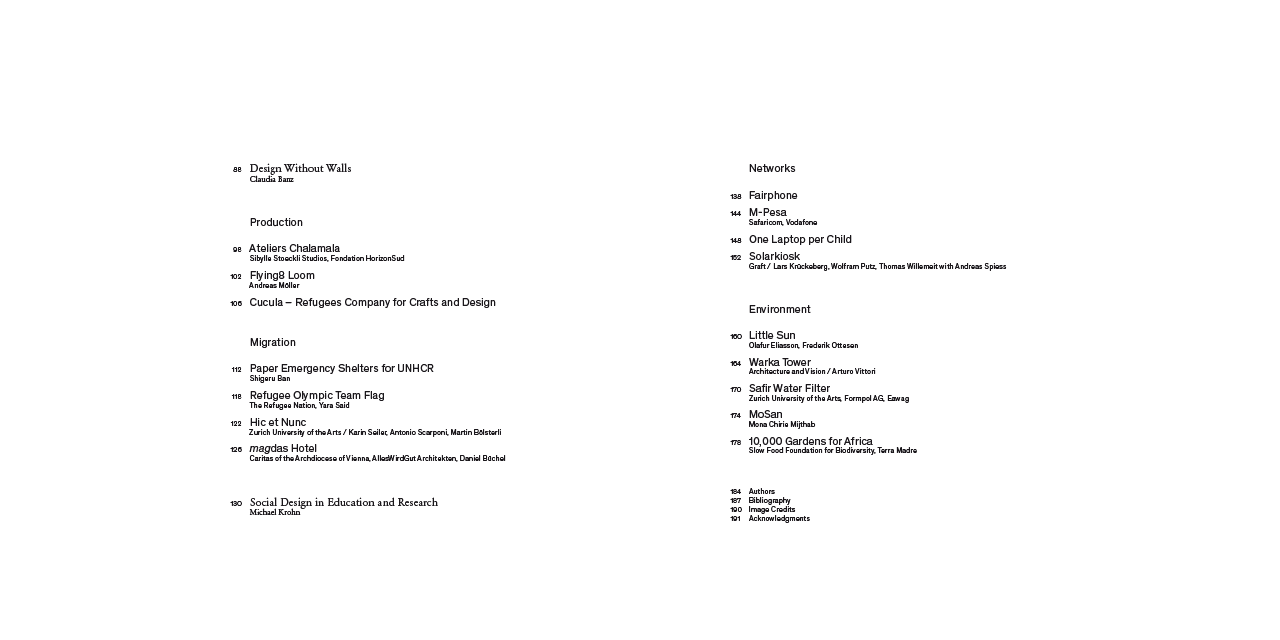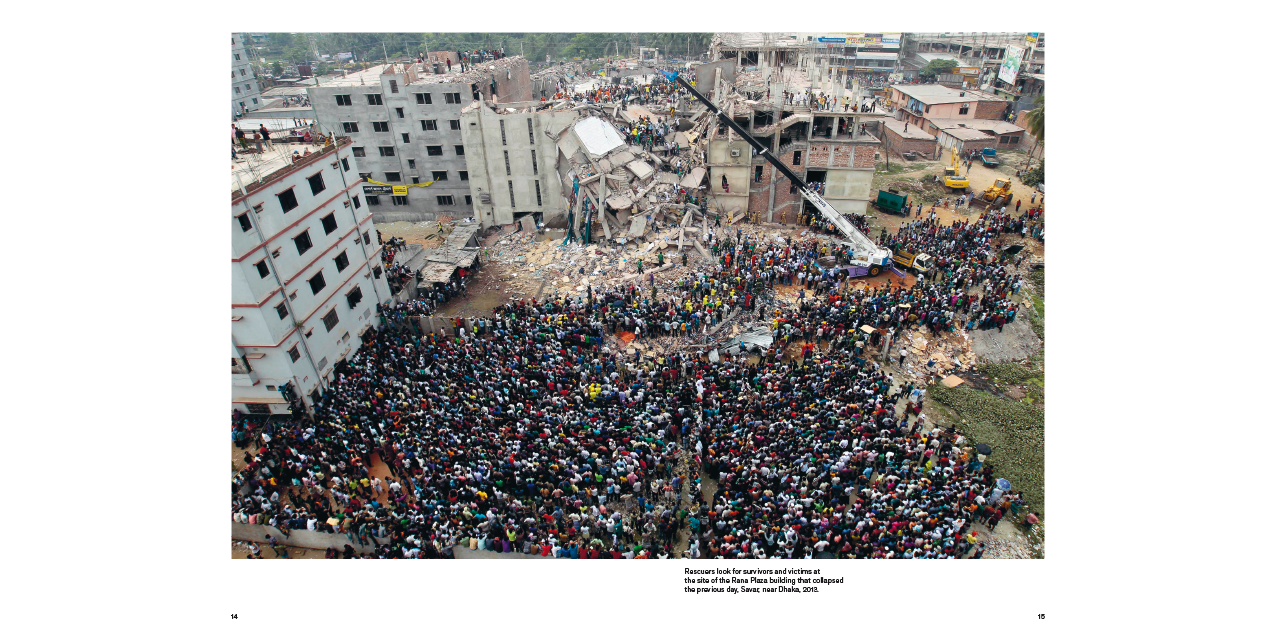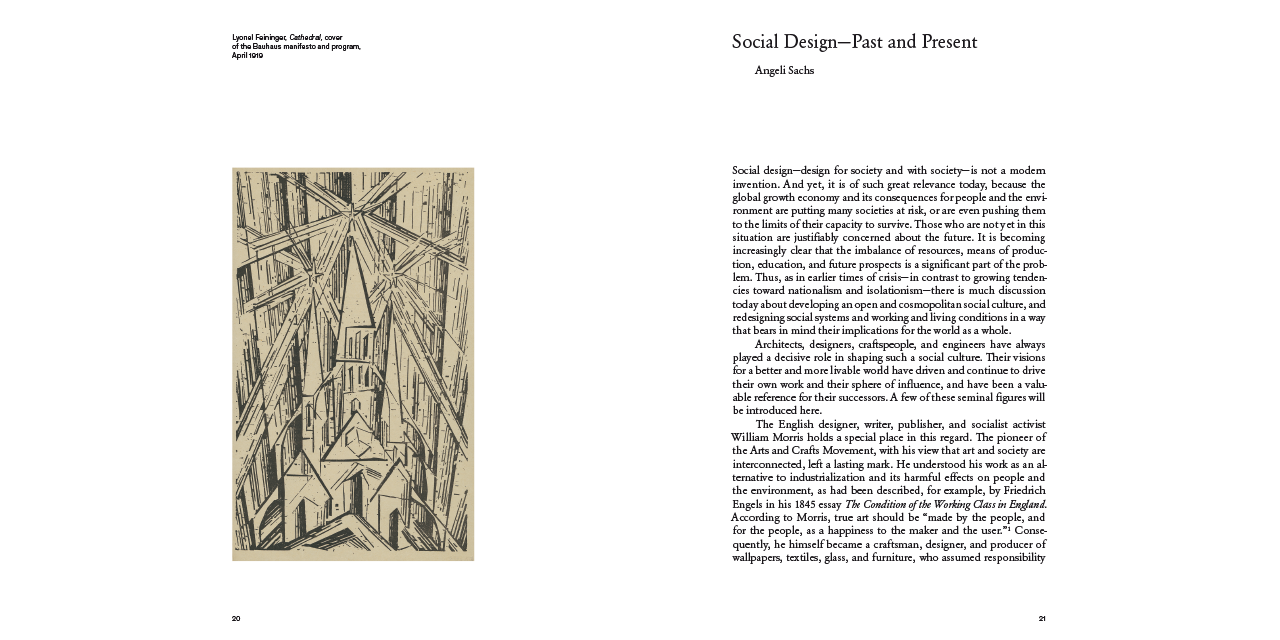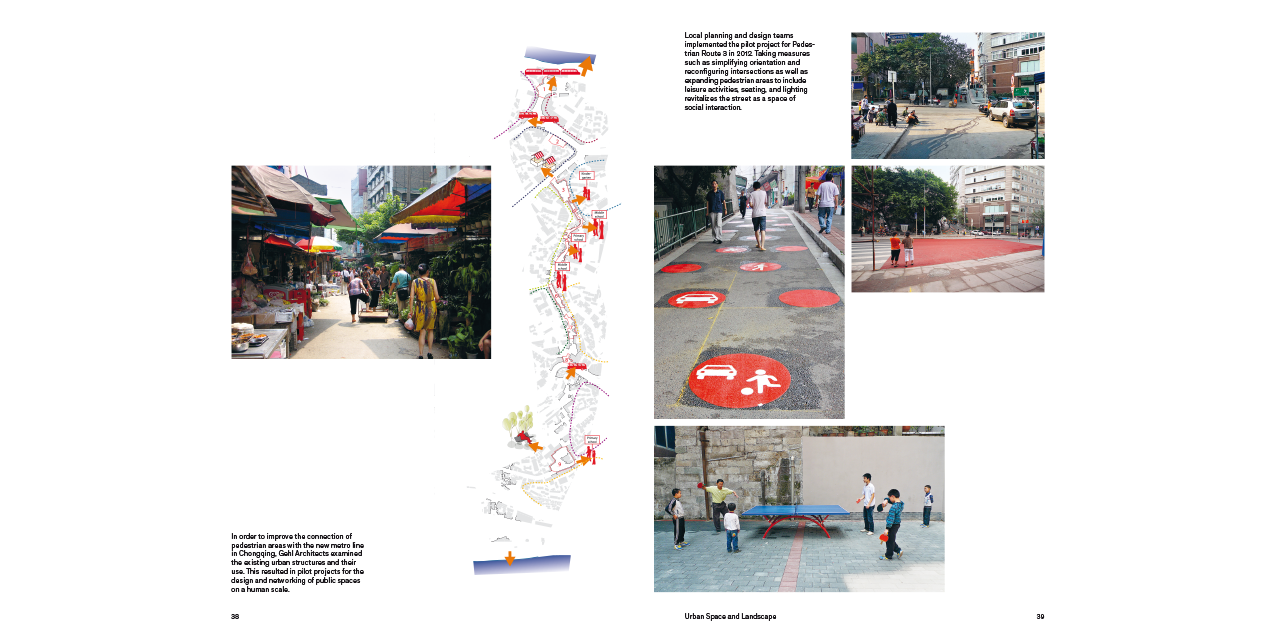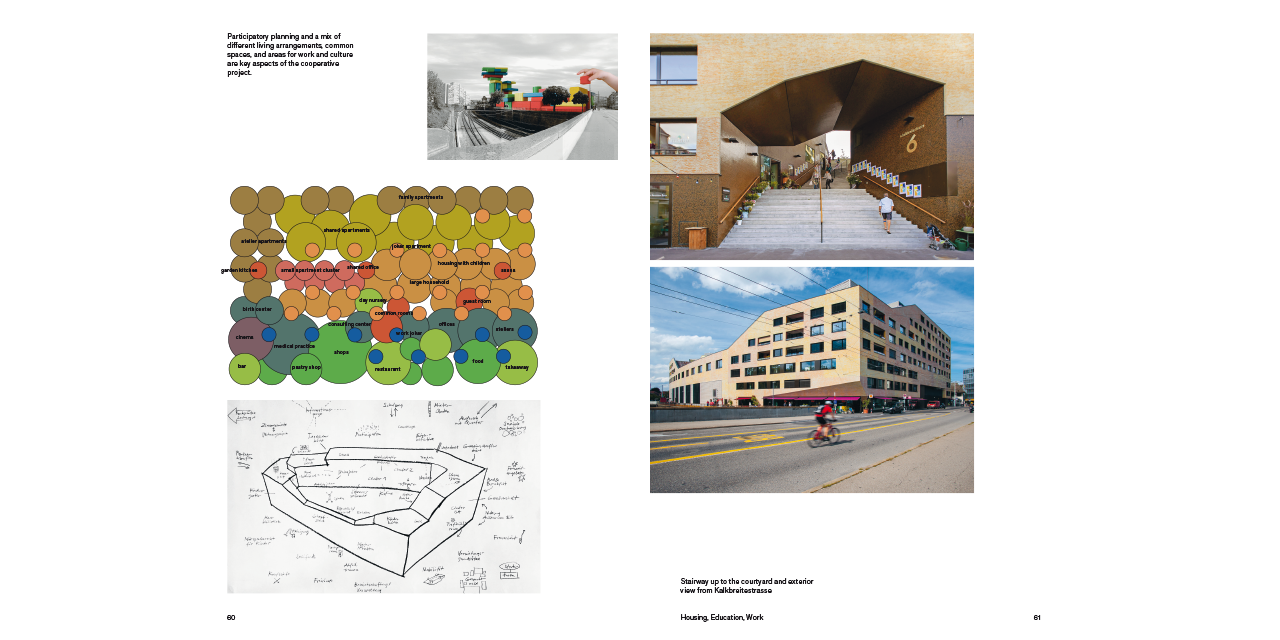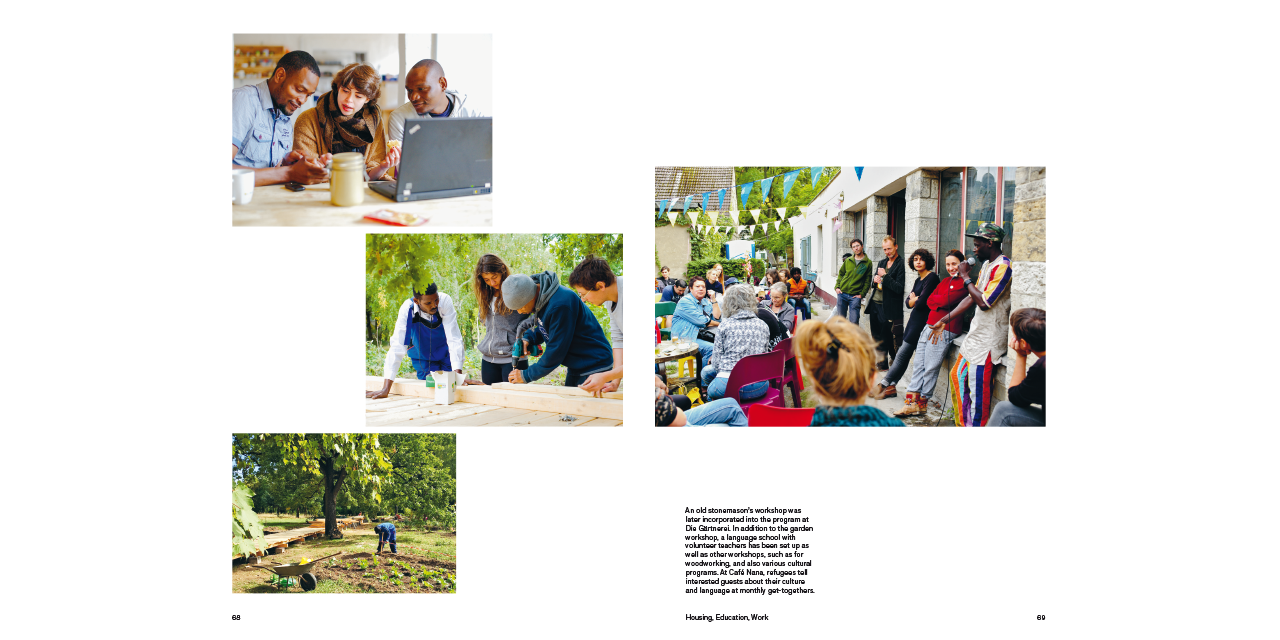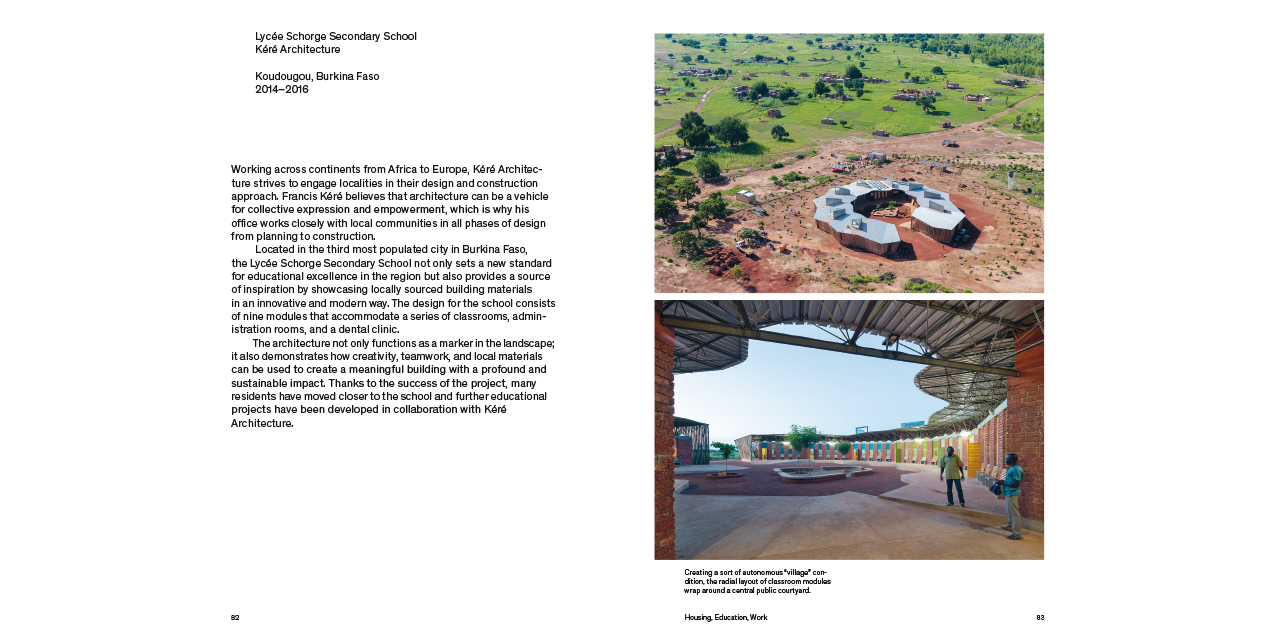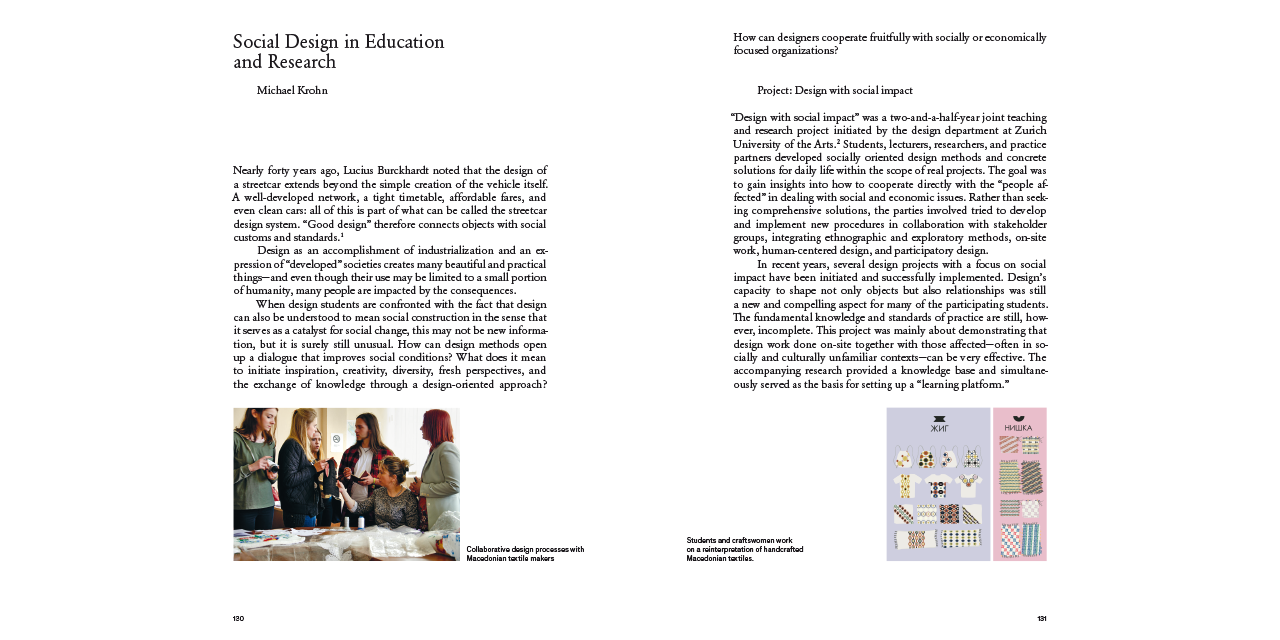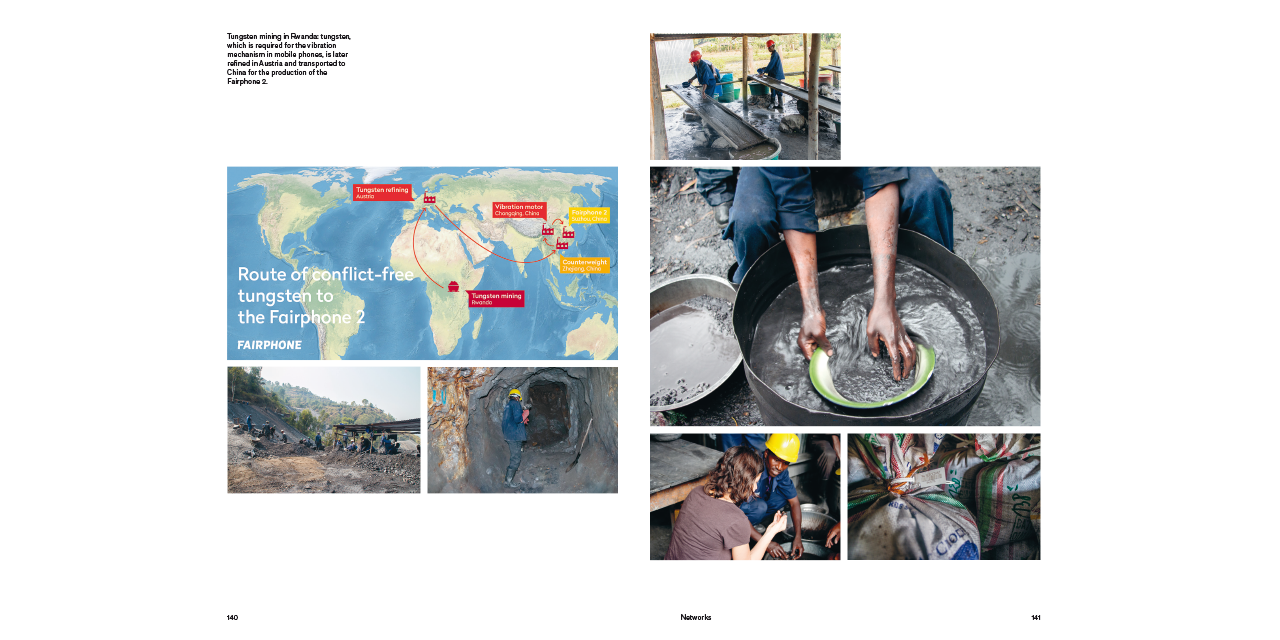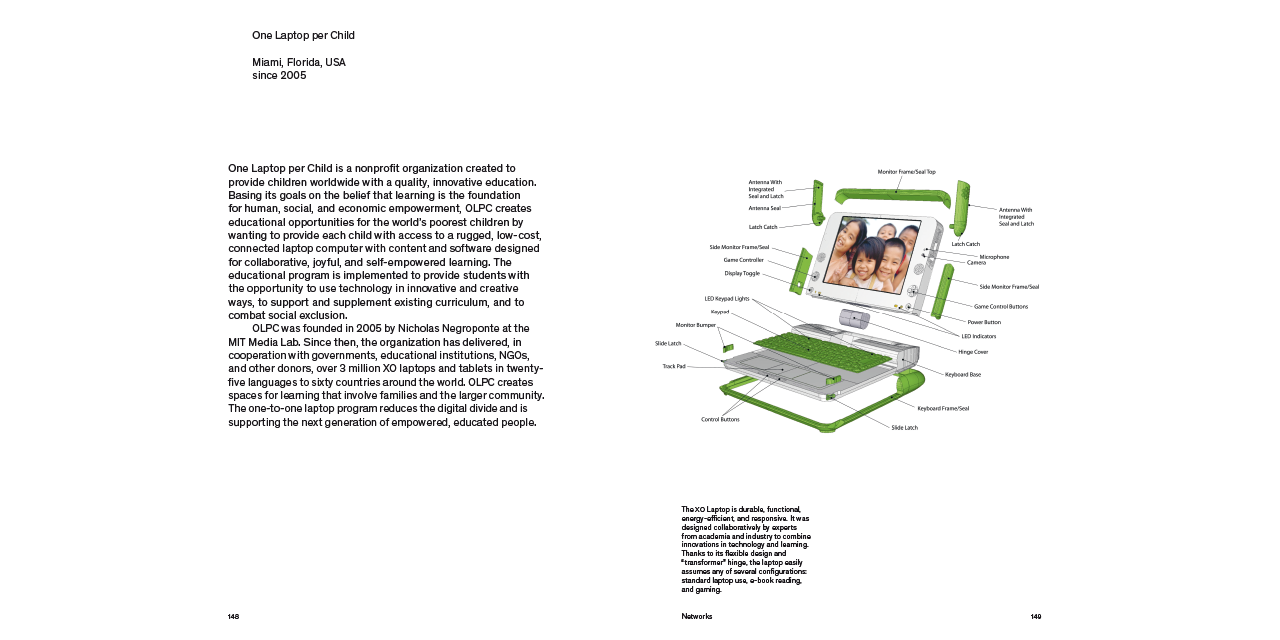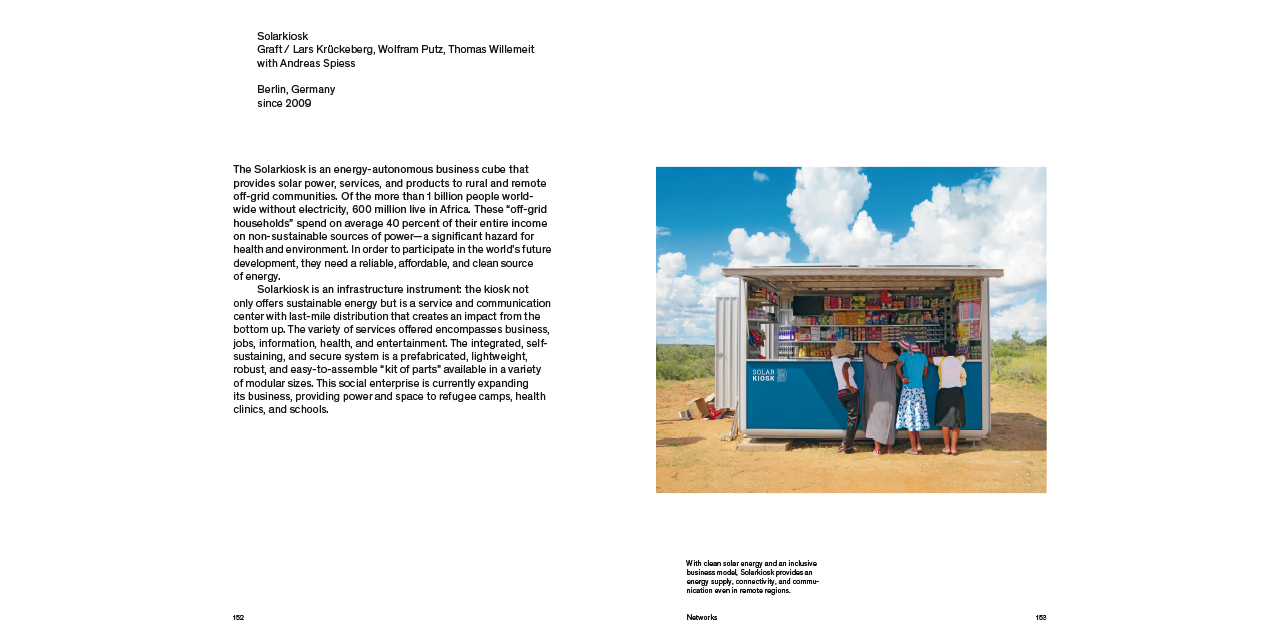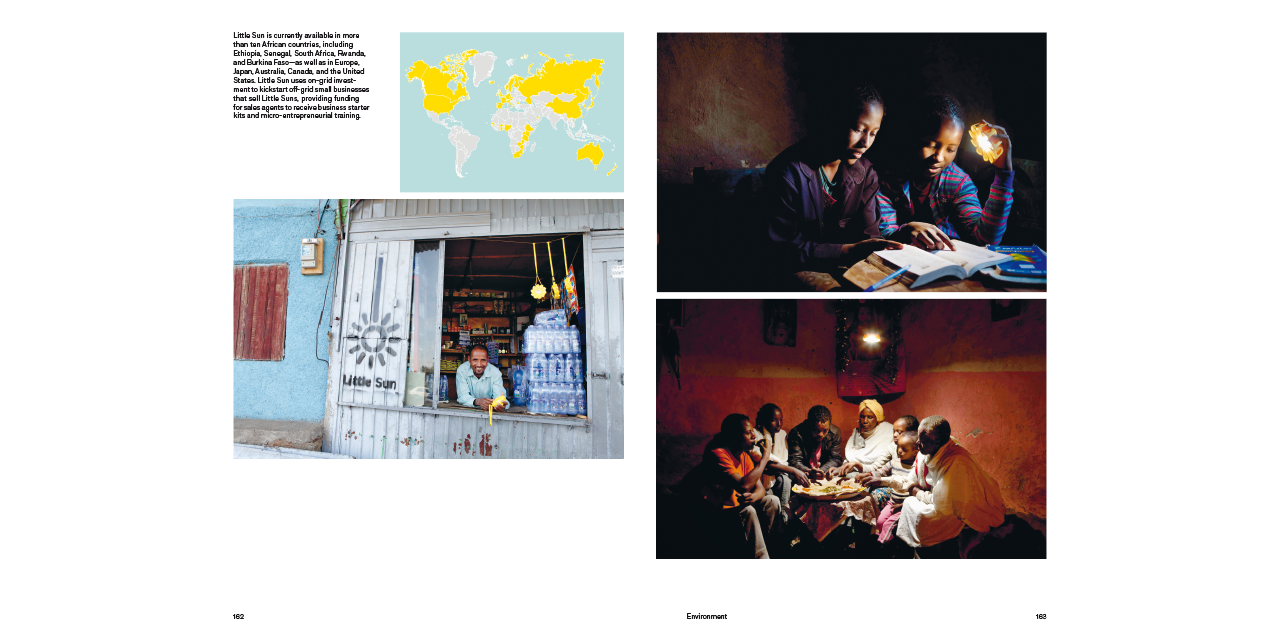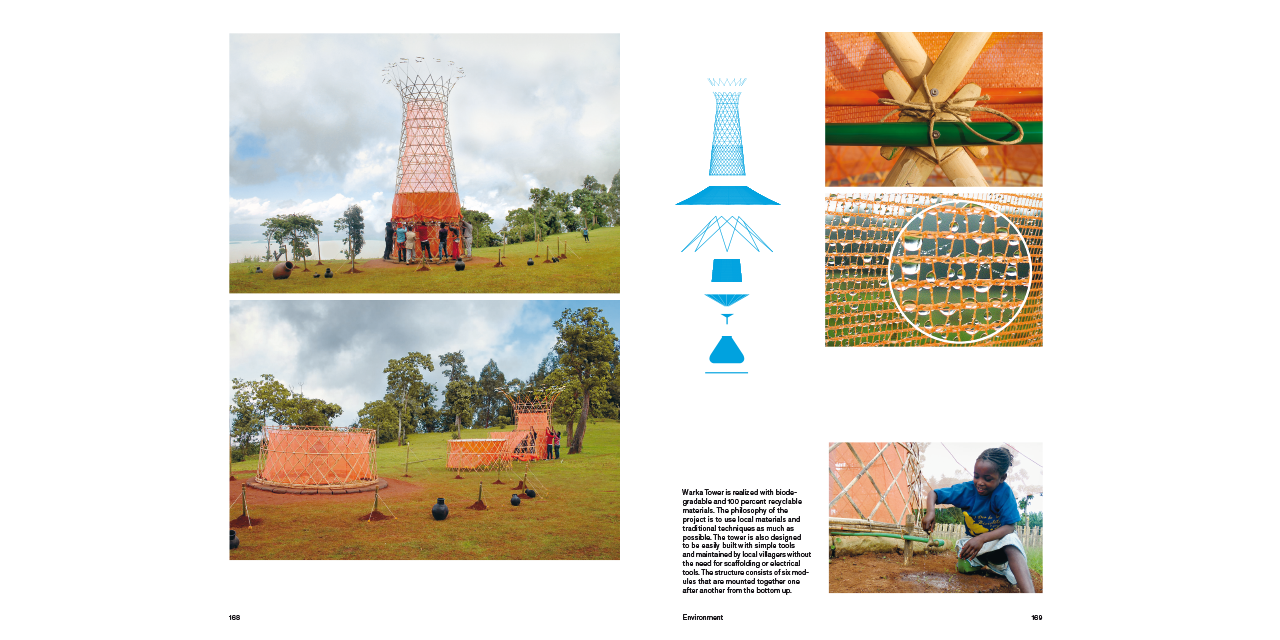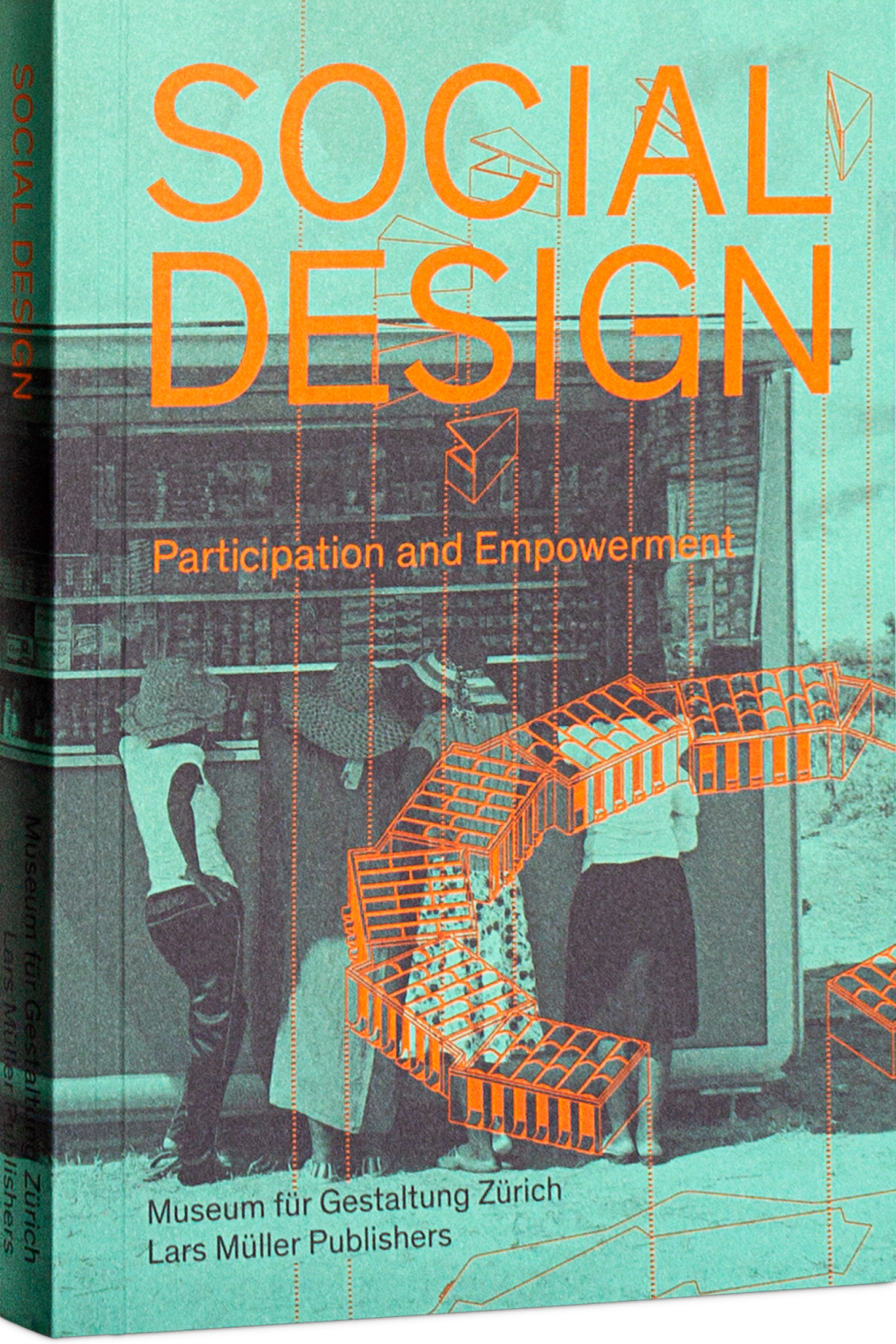
Social Design
Social design is design for society and with society. As social innovation and on the basis of dialogue and participation, social design strives for a new networking of the individual, civil society,
government, and the economy. Social design is thus a response to a global growth economy and its consequences for humans and the environment: The means of production and resources are becoming scarcer, setting off discussions about the need to redesign social systems and living and working environments.
Architects and designers have always played a vital role in shaping this social culture.
Social Design thus presents a long-overdue survey of current international positions of interdisciplinary breadth, ranging from new infrastructures to the re-conquest of cities by their inhabitants. Some twenty-seven projects in the areas of cityscape and countryside, housing, education and work, production, migration, networks, and the environment are framed by three research studies that trace the historical roots and foundations of social design and look at today’s theoretical discourse as well as future trends.
Social Design features projects such as Fairphone, Little Sun (Olafur Eliasson, Frederik Ottesen), Paper Emergency Shelters for UNHCR (Shigeru Ban) and many more.
Social design is design for society and with society. As social innovation and on the basis of dialogue and participation, social design strives for a new networking of the individual, civil society,
government, and the economy. Social design is thus a response to a global growth economy and its consequences for humans and the environment: The means of production and resources are becoming scarcer, setting off discussions about the need to redesign social systems and living and working environments.
Architects and designers have always played a vital role in shaping this social culture.
Social Design thus presents a long-overdue survey of current international positions of interdisciplinary breadth, ranging from new infrastructures to the re-conquest of cities by their inhabitants. Some twenty-seven projects in the areas of cityscape and countryside, housing, education and work, production, migration, networks, and the environment are framed by three research studies that trace the historical roots and foundations of social design and look at today’s theoretical discourse as well as future trends.
Social Design features projects such as Fairphone, Little Sun (Olafur Eliasson, Frederik Ottesen), Paper Emergency Shelters for UNHCR (Shigeru Ban) and many more.
